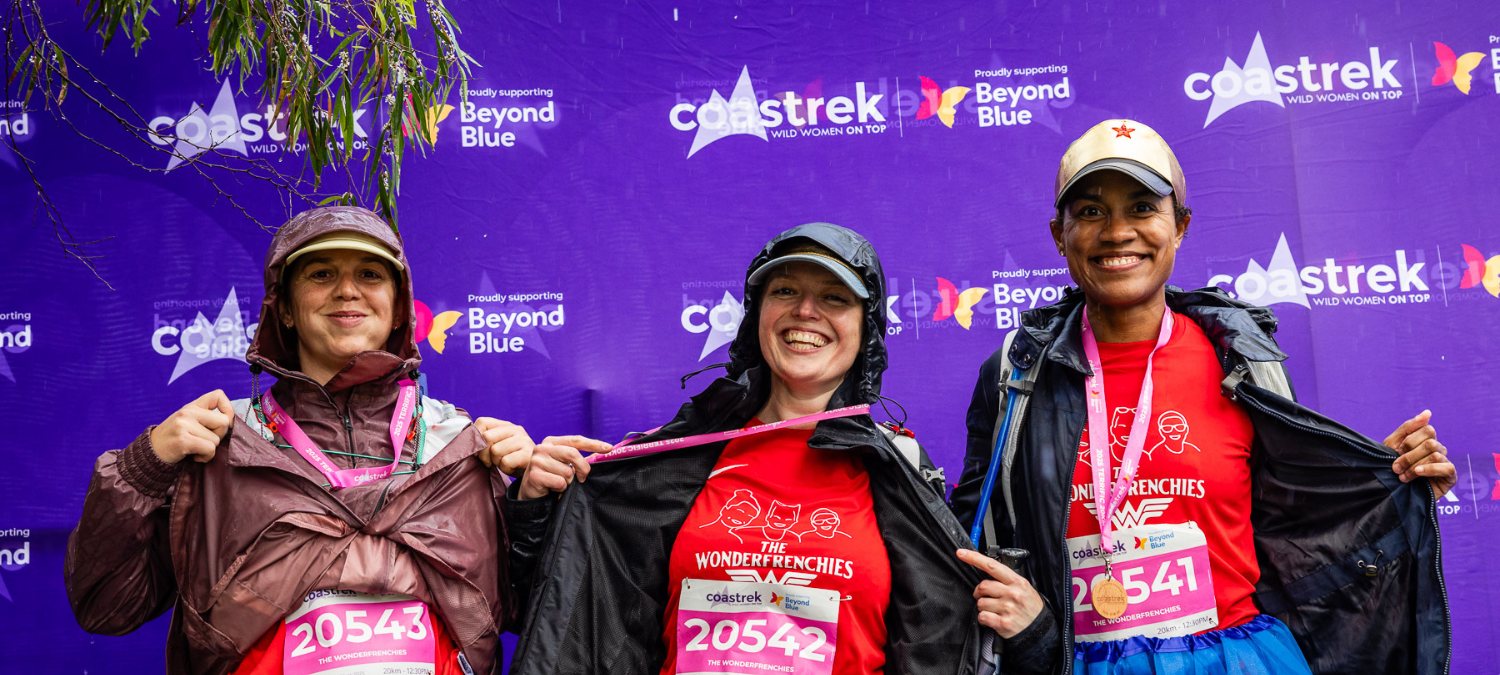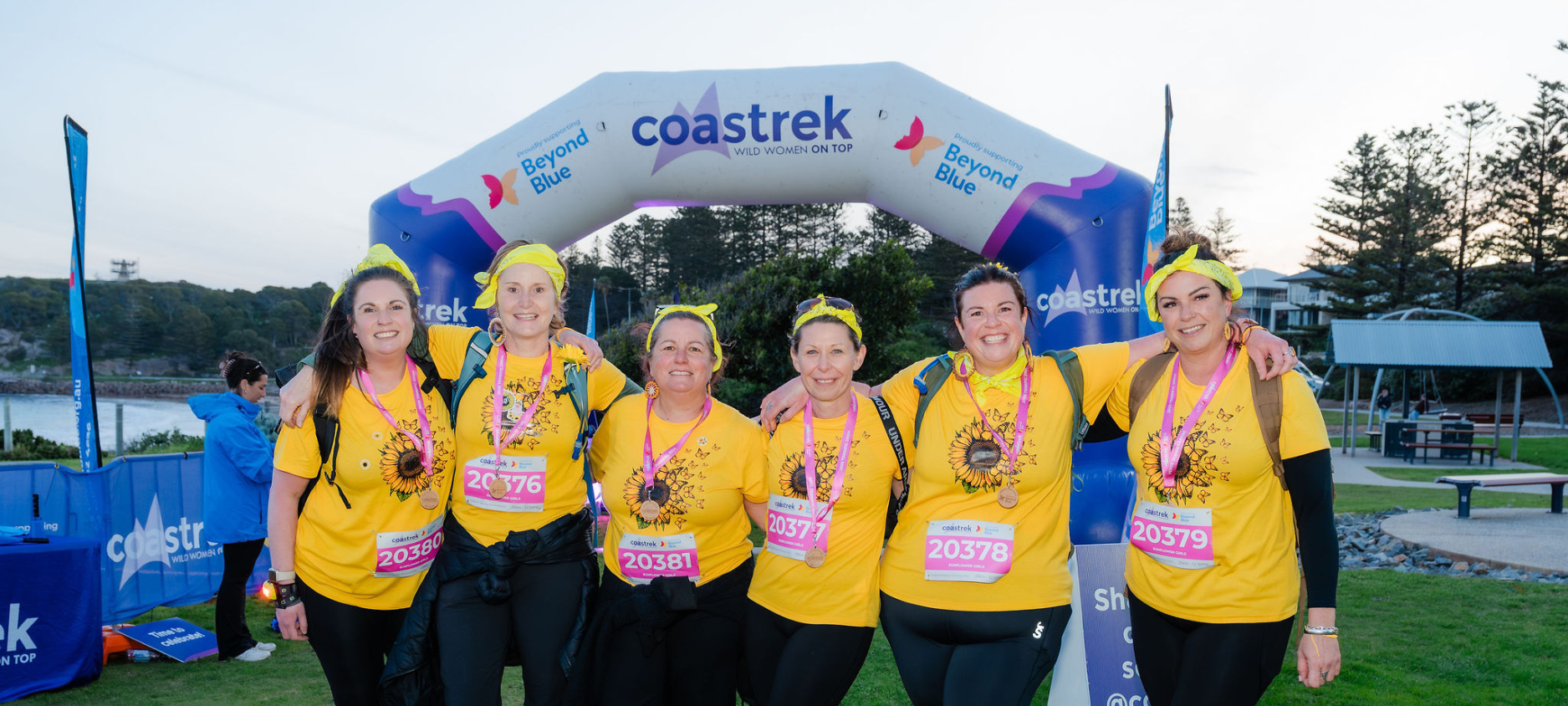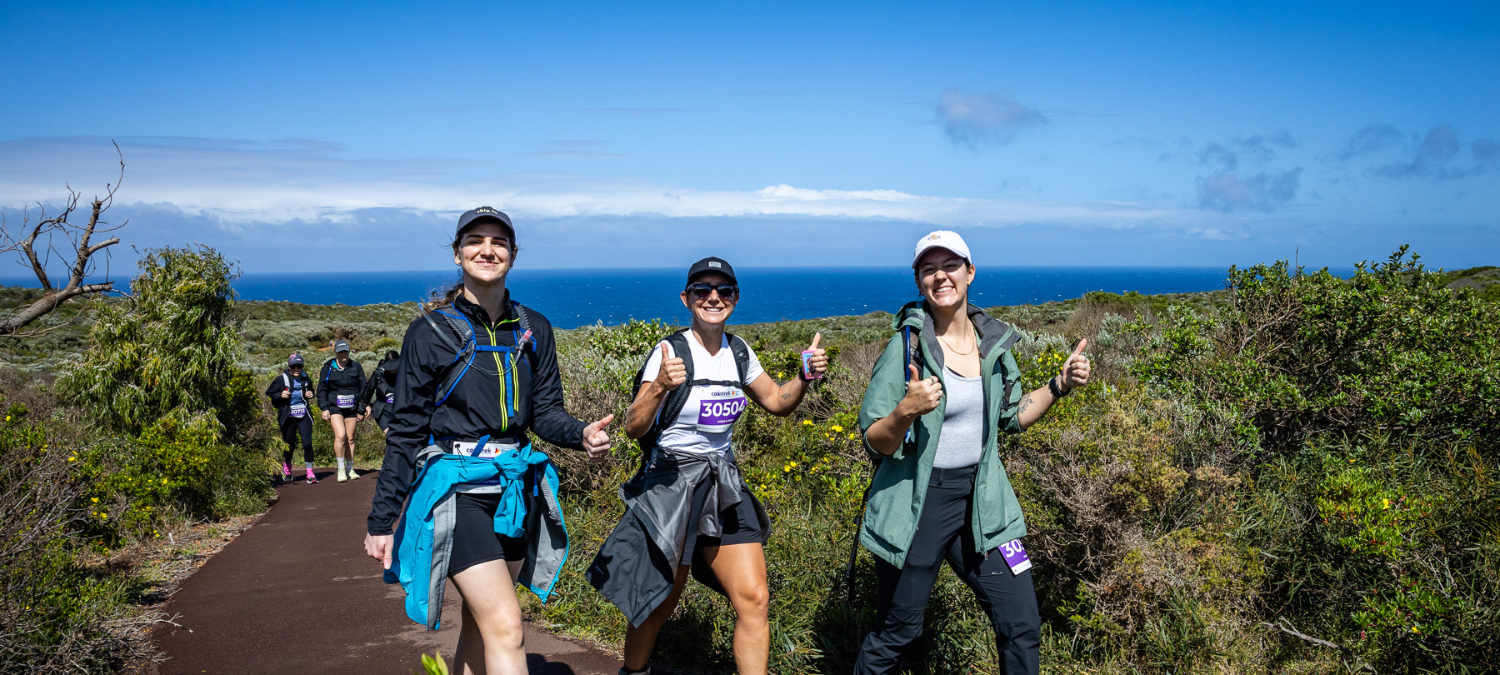By the Wild Women On Top Team
If you’re new to hiking, it can be hard to know where to start.
Like most activities, there’s plenty of fancy, expensive, high-performance gear, and it’s easy to convince yourself you need all of it from the get-go.
But the truth is, there’s just a few very basic gear requirements you need when you start hiking. From there, you can begin to build your kit slowly over time.
The most important thing to remember is that quality counts. As Vivienne Westwood said, you want to “buy less, choose well, and make it last”. This is not the time to skimp and save, or buy something that’s ‘good enough’ on sale. You’ll only end up back at the shops when the cheap one breaks. These items will form the foundation of your hiking kit and some of these items could save your life.
The essentials list:
- Shoes / Boots
- Backpack
- Raincoat / Waterproof jacket
- Socks
- Head Torch
- Hiking Poles
What to look for:
Shoes / Boots
When you first start walking, all you need is shoes. Comfy, well-fitting runners or trainers with decent tread are perfect. But if you’ve had the old trainers for more than a year or two, treat yourself to a new pair!
However, if you want to take your hiking to the next level, walking on steep or rocky trails, in varying weather conditions or for long hours, you may want to step up your shoe game.
There’s plenty of shoe options, so the best thing to do is talk to an expert at a reputable gear supplier such as Paddy Pallin. They’ll be able to help you find shoes that are perfect for your foot and the type of hiking you’ll be doing.
They might be hiking boots, trail runners, approach shoes or sandals. They might have a super squishy sole, extra ankle support, or amazing grip. They might suit narrow feet or wide feet. They might be leather (longer lasting) or Gortex (waterproof, easier to break in). There’s heaps of options, so do your research and find the shoe that best works for you.

Some things to know about buying boots:
- It’s a process, so don’t do it when you’re in a rush. Try on LOTS! Walk around in the shops. Don’t be afraid to walk away if they aren’t perfect.
- Make sure they are correctly fitted. If you’re not 100% sure of the competency of the sales assistant, come back later. Poorly fitted boots can ruin a hike.
- It’s NOT the time to hunt for a bargain. Buying boots on sale, unless you know exactly the boots you’re after, is ALWAYS a mistake. You’ll end up having to replace them. There’s lots of things you can skimp on, but boots are NOT one of them. Expect to pay between $250 and $350 for quality boots.
- They take time to wear in, so make sure you allow enough time before a big hike to ensure your boots are perfect. They shouldn’t rub, cause blisters, or be uncomfortable at all! They should feel like slippers.
Backpack
Like shoes, there’s a backpack for every occasion, so you’re best to talk to someone at Paddy Pallin or Camelbak who can help you find the right one for your body, and your activity. Your first pack is NOT something to buy online.
Here’s some things you want in a backpack:
- Adjustable waist straps. This is critical, as it takes the weight out of your back and shoulders and onto your hips, which are stronger.
- Adjustable shoulder straps. You want your pack to fit YOU, not your friend, your hubby or your child.
- Multiple pockets and straps for holding bits and pieces. This is especially important if you’re getting a larger backpack, as you want to be able to put your camera in one spot, your raincoat in another, and your phone in another, for easy access on the trail.
- A water bladder (hydration pack). Many people wonder if this is essential, and we say YES, especially if you're doing Coastrek. Sure, you can carry a water bottle or two, but if you can’t access it while you’re walking you’re going to hold the whole team up. This results in one of two bad options. Either everyone gets annoyed because you’re slow, or you stop drinking water. Not ideal. Get a water bladder and you’ll sip on it all day. It’s genuinely worth the extra cash.
- Waist strap pockets. These aren't essential, but are very practical. You can store chocolate, a camera, and lip balm in your front pockets for easy access.
There are three main backpack types:
- A tiny hydration pack (for a supported endurance event such as Coastrek), which just holds minimal items such as water, raincoat, first aid and snacks.
- A day pack, which holds everything you’d need for a remote day out hiking, such as a thermos of hot water, full lunch, treats, raincoat, warm jacket, maybe a change of shoes, and first aid.
- A full pack, which holds all the day pack stuff but also sleeping bags, tents, cooking utensils - the whole kit.
Between these, there’s lots of variety, so seriously, go talk to someone in person and find the best one for you.

Raincoat / Waterproof Jacket
Even if you’re a fairweather hiker, weather can turn – and fast. If you’re keen to get into hiking, you need a good fully waterproof and lightweight raincoat. One of those plastic ones the kids have for school is not going to cut it.
It needs air vents so your sweat doesn’t make you wet from the inside. It needs a hood. It needs to seal really well. And it needs to be your colour, girl! Nobody’s got time for a raincoat that doesn’t suit them!
There’s options for length (we prefer the ones that cover your bum, so you can sit down), fit, style, pockets, warmth, and weight, so find out what works for you!
Expect to pay between $200 and $400 for a quality jacket that will last.

Socks
Get good socks. We love Icebreaker, Bridgedale, Injinji, Falke, Le Bent, and Wigwams (which you can get at Paddy Pallin). Good socks will not let you down.
Head torch

Even if you’re not planning to hike at night, you need a head torch. It can get dark fast in the bush, and if you get lost or just distracted enjoying the sunset somewhere, you may need a torch to get home.
We’ve got a few fave headtorch brands. Led Lenser are fantastic. They're lightweight and long-lasting. Petzl and Black Diamond are also popular, high-quality options.
When it comes to head torches, you really do pay for what you get, so we recommend getting a good one that will last a while and give you strong, consistent light when you need it most.

Hiking poles
They may look funny, but hiking poles are seriously invaluable and if you’re interested in becoming a keen hiker, they’re a must have.
Why? Because they redistribute weight in your body, helping to take pressure off your knees, hips, and ankles. They give you a great upper-body workout. They improve balance, and make crossing streams, scree, or slippery ice much easier. And they’re great for removing spider webs off the trail!

If all else fails, the most important thing to remember is buy quality, and do your research. And, as always, we're available to answer any questions you might have about gear over in our Facebook group!
Happy shopping!






